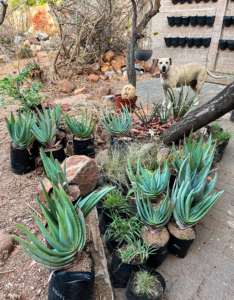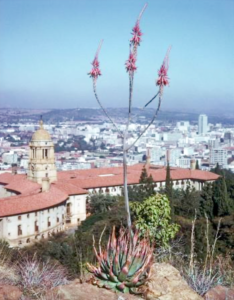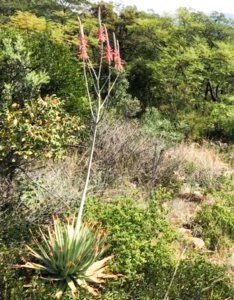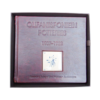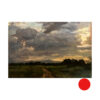Rewild our nurseries: 70% indigenous by 2030!
Please Sign Our Petition
We have to convince parliament to promulgate new legislation, requiring nurseries and other plant sellers to have 30% indigenous representation by the end of 2026, 50% by the end of 2028, and 70% by the end of 2030.
Because most nurseries and other plant retailers predominantly sell exotic plant species, the root of South Africa’s languishing biodiversity problem persists. Plants that should never leave cultivation are distributed freely through retail channels, often mislabelled or unlabelled, and later escape into surrounding ecosystems. This ongoing cycle of introduction, escape, and spread undermines the billions spent on control and rehabilitation. Without stricter enforcement and education within the horticultural trade, eradication efforts become a losing battle — we clear one area only for new invasions to begin elsewhere.
Nurseries have a crucial role to play in reversing biodiversity loss. By adopting strict indigenous-first policies, auditing plant lists against NEMBA’s prohibited species, and labelling all stock clearly, they can become the first line of defence rather than a vector of invasion. Promoting local provenance plants, partnering with conservation agencies, and educating customers about the ecological and water benefits of indigenous gardening can transform nurseries into active allies in restoration. This shift would not only protect natural habitats but also help rebuild public trust in the horticultural sector as a steward of South Africa’s living heritage.
Alien plants already cover roughly ~7% of South Africa’s land area — that’s ≈85,336 km² (7% of 1,219,090 km²), an area larger than the Western Cape.
That’s about 52× the size of Johannesburg (metro), 35× Cape Town (metro), 14× the City of Tshwane (Pretoria metro), 54× Greater London, or 70× New York City.
Invasive alien plants are reducing national surface water runoff by ~2.9% on average (up to much higher losses in some catchments), and could rise to ~5.2% if unmanaged.
This means that the water that South Africa loses each year to invasive alien plants could supply around 40 to 80 million people with their daily household water, for a year.
Government’s Working for Water programme has cleared >1 million hectares since 1995, but national analyses show we’ve only reached ~14% of the estimated invaded area, so net invasion continues to increase without sustained follow‑ups.
Management spending (1960–2023) totals about R9.6 billion (2022 Rands)—estimated to be ~4% of what’s actually needed to manage invasions effectively (≈ R231.8 billion required).
National status reporting (SANBI, 2022) confirms biological invasions are a growing threat to biodiversity, water security, fire regimes and livelihoods, underscoring the need for pre‑border screening, nursery‑trade controls, early detection/rapid response, and long‑term follow‑up after clearing.

Greening Lynnwood:
Ons het begin! En toe weer opgehou.
The much-awaited planting of trees on Lynnwood Road has started with the first 30 tree wisterias planted.
Work on Lynnwood Road has come to a halt again (Oct 2025) and we await the resumption.
Ons hou jou op die hoogte oor die toedrag van sake.


Bont Huijs Kunsateljee, in samewerking met die Pretoria stadsraad, asook die hoofborg Halfway Lexus, gaan binnekort 230 nuwe bome op Lynnwoodweg plant. Hierdie is die eerste fase van ‘n paar hervestigings.
Die inisiatief is in reaksie op die onlangse slagting van honderde koorsbome en ander, weens padverleggings.
Chiko and Mike make up our watering team whilst the road is under construction.


Following the devastating loss of several adult owls in the vicinity recently, we initiated the installation of two owl boxes on the Halfway Ridge Square on Lynnwood property to assist with breeding. Een boks sal die gevlekte ooruil (spotted-eagle-owl) lok en die ander die alombekende nonnetjiesuil (barn owl).
Kontak gerus vir Eco Solutions vir jou eie boks!


Ons het onlangs ’n pragtige meerstammige kuskoraalboom in een van Die Wilgers se parke geplant.

Die ateljee is gereeld gasheer vir matriekafskeidfoto’s. Dié jaar se fooie is geskenk aan die Skuilkranskopje-reservaat.
Van die fondse is aangewend om 10 aloe pretoriensis aan te skaf. Die aalwyne gaan hervestig word in reservate in die stad.
Lees gerus hier oor die Pretoria-aalwyn.

Die kimlyn van Pretoria verteenwoordig die uitwerking van verstedeliking op die natuur. Die vier spesies hier is almal endemies tot ons area en kon gered word voor stootskrapers ‘n nuwe informele nedersetting begin skraap het. Die verdordes aan die regterkant kon nie gered word nie.


Lost Habitat by Willie van Rensburg
A powerful statement highlighting the plight of nature conservation and the extinction of species due to their loss of natural habitat, medicinal harvesting, urbanisation, agricultural expansion and overgrazing.

Invasive Species
Invasive plant species are dangerous to indigenous plant species because they outcompete native plants for vital resources like sunlight, water, and nutrients. They often grow faster and lack natural predators, allowing them to spread rapidly and dominate ecosystems. This leads to a reduction in biodiversity, as indigenous plants are displaced, and can disrupt the balance of ecosystems, affecting local wildlife that depends on native flora for food and habitat. Ultimately, invasive species can alter soil composition and even affect water availability, making it harder for native species to thrive. For more information, visit https://invasives.org.za/

#greeninglynnwoodroad
Ons het begin!
The much-awaited planting of trees on Lynnwood Road has started with the first 30 tree wisterias planted.
Work on Lynnwood Road seem to have come to a halt this year, so we’re unsure when the others will be planted.
Ons hou jou op die hoogte oor die toedrag van sake.


Bont Huijs Kunsateljee, in samewerking met die Pretoria stadsraad, asook die hoofborg Halfway Lexus, gaan binnekort 230 nuwe bome op Lynnwoodweg plant. Hierdie is die eerste fase van ‘n paar hervestigings.
Die inisiatief is in reaksie op die onlangse slagting van honderde koorsbome en ander, weens padverleggings.

Halfway Lexus is sponsoring 170 white pears (drolpere) and 60 tree wisterias (vanwykshoute).
Beide bome is inheems en edemies tot ons groter area.
We’ll keep you posted on this very exciting venture!
Dankie byvoorbaat aan Halfway Lexus Pretoria vir hul ruimhartige groenskenking.


Chiko and Mike make up our watering team whilst the road is under construction.
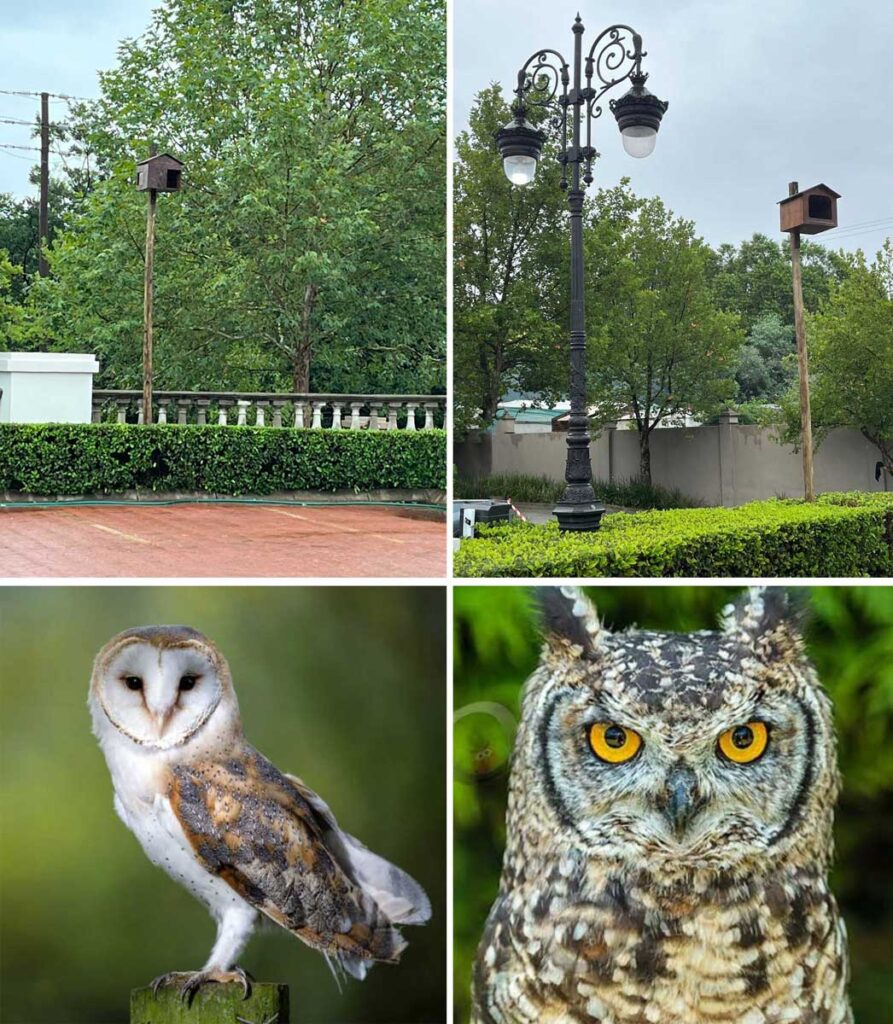

Scan the QR code to see our Instagram post.
Following the devastating loss of several adult owls in the vicinity recently, we initiated the installation of two owl boxes on the Ridge Square on Lynnwood property to assist with breeding – proudly sponsored by Halfway Lexus. Een boks sal die gevlekte ooruil lok en die ander die alombekende nonnetjiesuil.
Kontak gerus vir Eco Solutions vir jou eie boks!
Ons het onlangs ’n pragtige meerstammige kuskoraalboom in een van Die Wilgers se parke geplant.
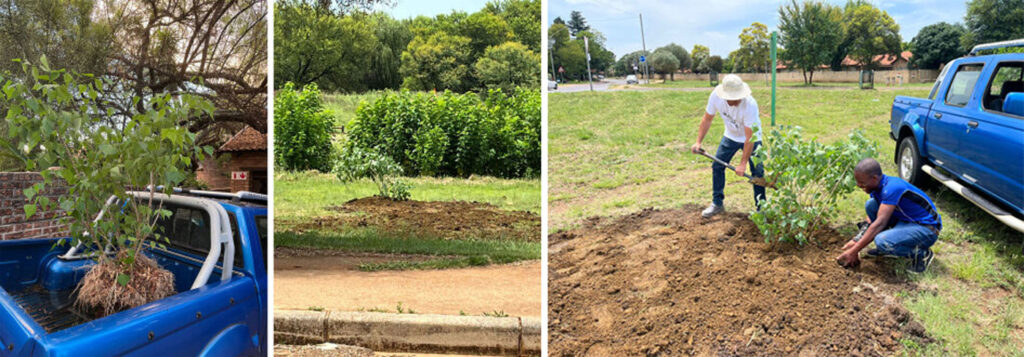



Die ateljee is soms gasheer vir matriekafskeidfoto’s. Die jaar se fooie is geskenk aan die Skuilkrans Kopje-reservaat.
Van die fondse is aangewend om 10 aloe pretoriensis aan te skaf. Die aalwyne gaan hervestig word in reservate in die stad.
Lees gerus hier oor die Pretoria-aalwyn.
Die kimlyn van Pretoria verteenwoordig die uitwerking van verstedeliking op die natuur. Die vier spesies hier is almal endemies tot ons area en kon gered word voor stootskrapers ‘n nuwe informele nedersetting begin skraap het. Die verdordes aan die regterkant kon nie gered word nie.
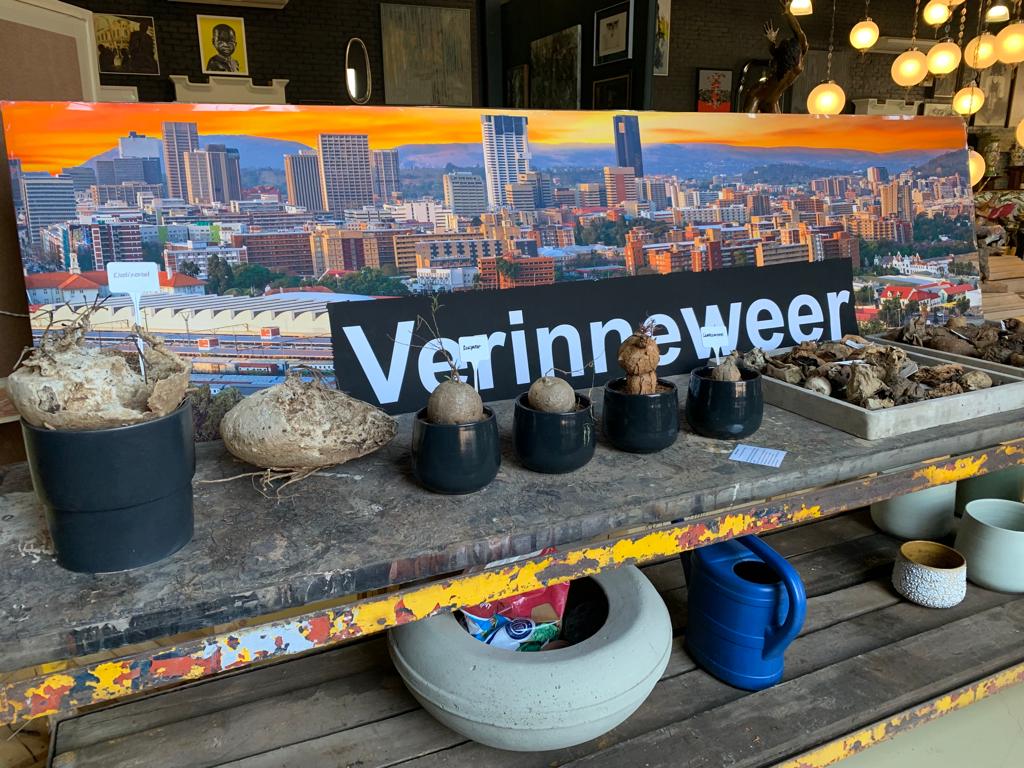



Lost Habitat by Willie van Rensburg

A powerful statement highlighting the plight of nature conservation and the extinction of species due to their loss of natural habitat, medicinal harvesting, urbanisation, agricultural expansion and overgrazing.

Invasive Species
Invasive plant species are dangerous to indigenous plant species because they outcompete native plants for vital resources like sunlight, water, and nutrients. They often grow faster and lack natural predators, allowing them to spread rapidly and dominate ecosystems. This leads to a reduction in biodiversity, as indigenous plants are displaced, and can disrupt the balance of ecosystems, affecting local wildlife that depends on native flora for food and habitat. Ultimately, invasive species can alter soil composition and even affect water availability, making it harder for native species to thrive.
For more information, visit https://invasives.org.za/
